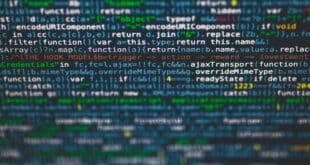You never knew that your logins are being sold as you browse. Credit: Firmbee.com, via Pexels and Canva.com
They didn’t get out because you lost them or left them behind. They were first stolen by malware you didn’t notice. After that, they were sorted and tagged. The hacker was only one, the hoodie was just a cover. But hundreds of people were targeted like crisps or vending machines.
The logs were then resold and mixed with other logs, repackaged as new logs, and re-branded. After that, they were repackaged into snacks. Credential economy is a marketplace that relies on passwords and trust in humans. You’re probably part of it, whether you realize it or not.
From breach to business
The leaks began from LinkedIn, Adobe and Facebook. One after the other, the headlines were screaming about millions of exposed passwords. We got used to changing passwords like lollipops. It’s not convenient, but it is manageable. Around 2018, something changed.
- These passwords have been harvested from Browsers, password managers and script sessions are infected.
- Redline Raccoon and other tools are now offering plug-and-play kits.
- You don’t have to be a hacker to do this. You can purchase these passwords for a fee.
Passwords weren’t dumped in forums, but were instead sorted through logs, cookie bundles and location filters. The entire browser session was zipped up into tidy folders. Your login suddenly became a valuable asset.
You are now logged in
It wasn’t a brute force approach; they waited for you, watched and took your data before you realized anything was amiss. This is the market’s language. Logs, configurations, and each folder contains a person who wants to trust Facebook to store his or her memories, or Google to protect their inbox.
- There is no mention of your name, but you will see all your habits including recovery questions, safe devices and autofill tokens. You are not entitled to a refund; only the purchaser is.
- While 16 billion records are being circulated on the internet – some dating back 10 years, others just yesterday – no regulator has yet issued a court or policy to prevent this.
- You were not accounted for, there was no cleaning up, and no user alerts. Just the digital records, legal grey zones, and unaccounted-for areas you are exposed to.
It’s not so much the actual act that is horrifying, but rather the silence afterwards. The idea that someone could take your digital existence for granted, then spread it without you being informed, is no longer malicious. It has become the norm.
A login no longer represents a sign of trust. It’s just a data point in a spreadsheet that fuels a black market economy — one that doesn’t need you to opt in. One that transforms memory, identity and routine into Stocks.
The worst part? You have probably moved on. New account. New password New app. There’s still the old version. The old you is still out there.
 Costa News Spain Breaking News | English News in Spain.
Costa News Spain Breaking News | English News in Spain.







